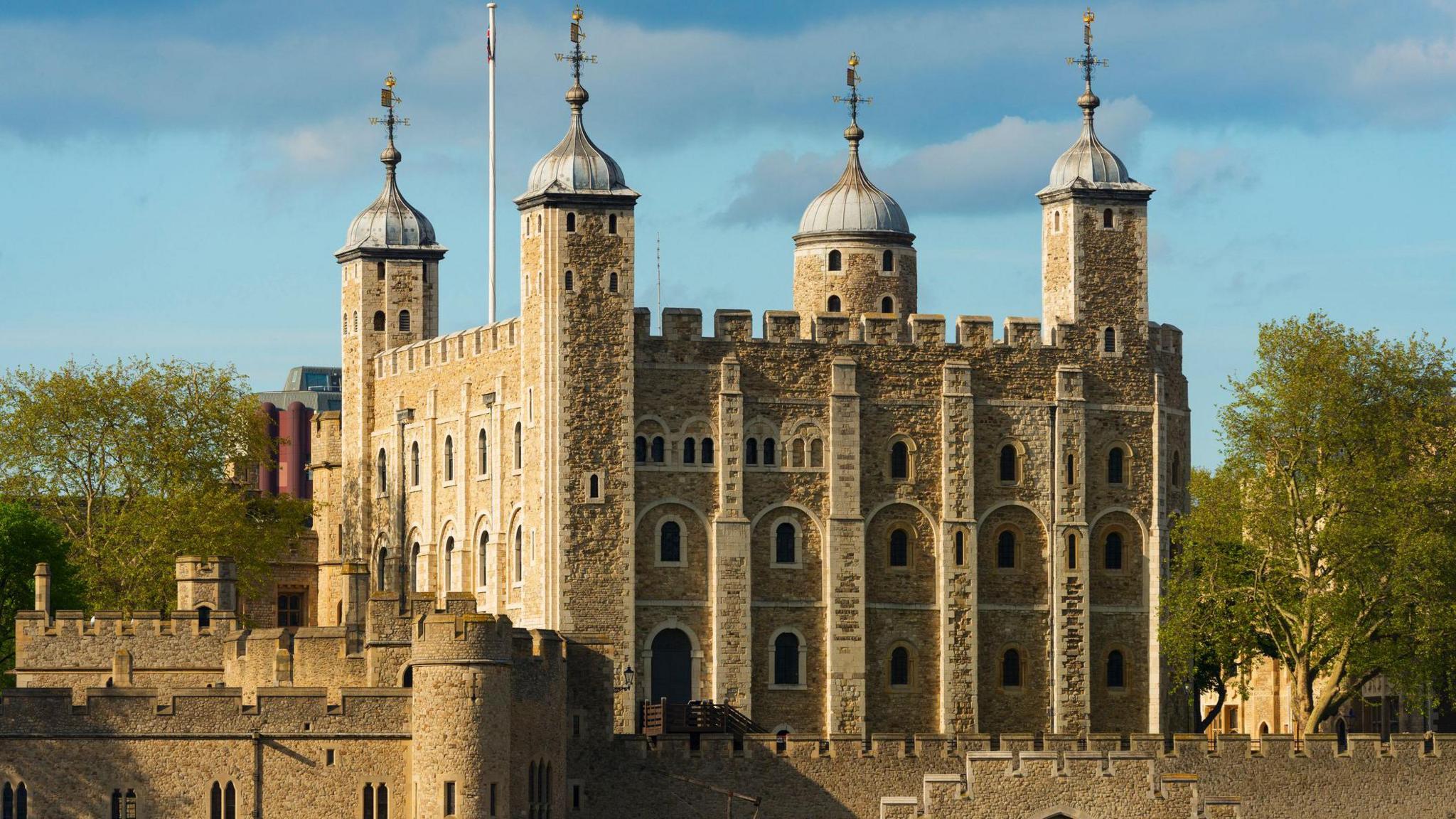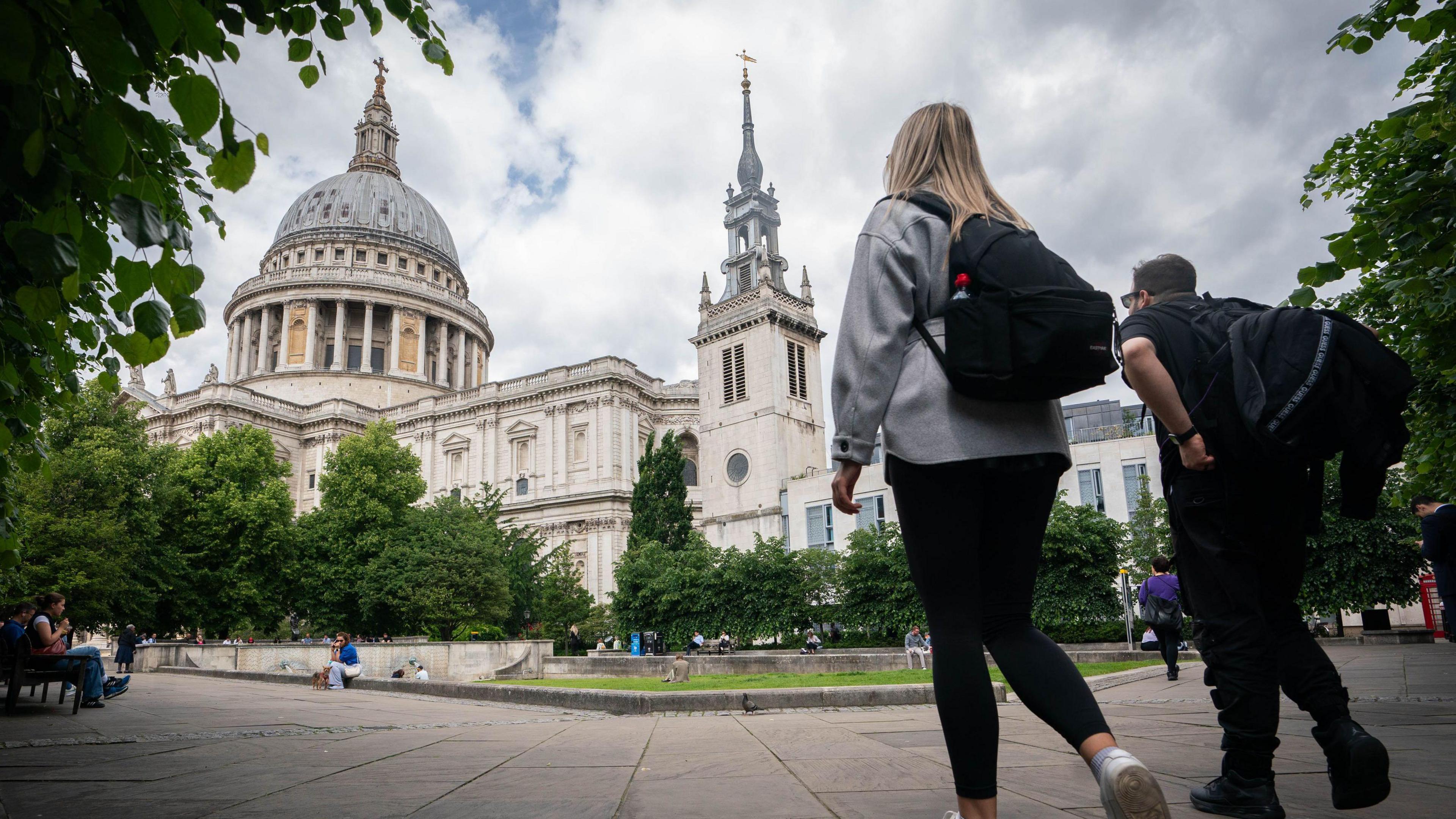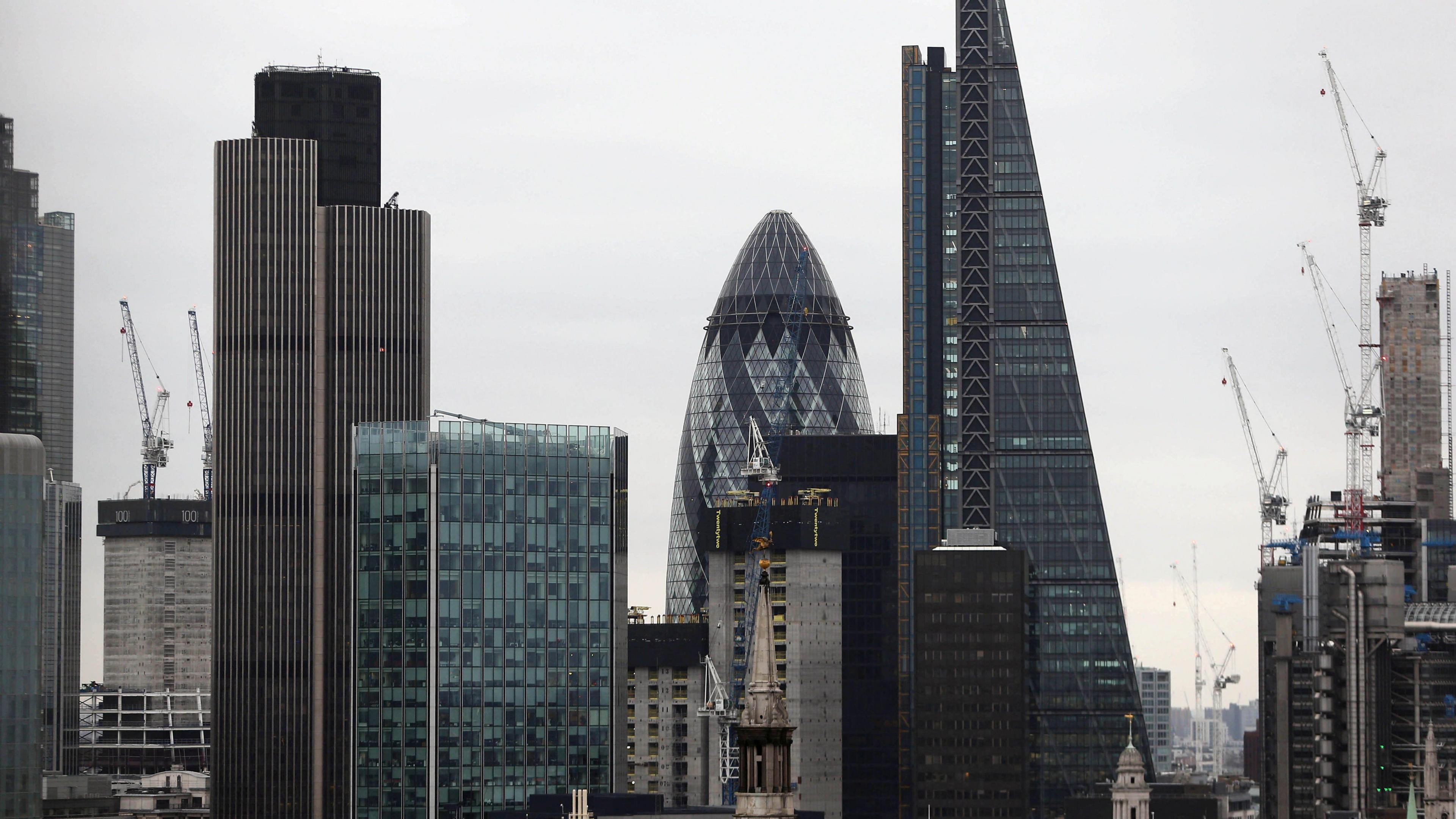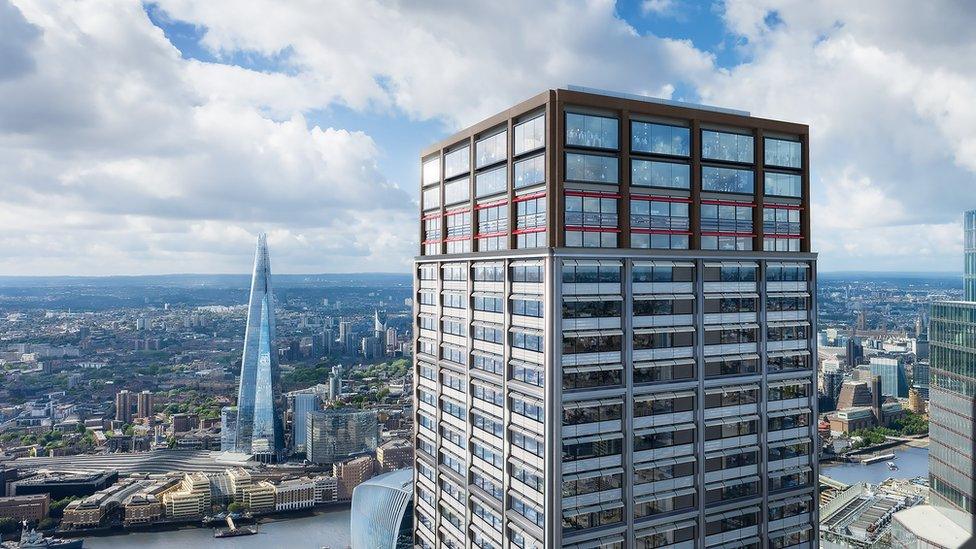Tower of London heritage status faces 'real threat'

Historic England has raised concerns over the impact of future planning decisions on the Tower of London's World Heritage Status
- Published
The Tower of London’s World Heritage status is under "real threat" from the City of London Corporation’s draft policies for tall buildings, Historic England has warned.
The heritage watchdog said the draft City Plan 2040 was "unsound in its current form" due to its wider heritage impacts.
Consultation on the plan, which will be the corporation’s guiding document on developing the Square Mile, ends on 17 June.
Shravan Joshi, chair of the planning and transportation committee, said the corporation's policies would ensure development celebrated heritage assets and supported economic growth.

Historic England said St Paul's Cathedral and the Tower of London could be harmed by the City of London's draft local plan
The plan details the City's policies on housing, offices and cultural spaces to guide future planning decisions.
Historic England said policies on offices and tall buildings were likely to "severely harm" assets such as St Paul’s and the Tower of London, in a submission seen by the Local Democracy Reporting Service (LDRS).
The representation, which was dated 24 May and has not been made public, praised the City's expanded archaeology policy and policies on retrofit and refurbishment of existing buildings.
'Severe harm'
But it said there was a "very serious inherent conflict and incompatibility" between its aspirations for the historic environment and its target of adding 1.2 million sq m (13 million sq ft) of office floorspace.
It wrote: "We believe that policies relating to tall buildings and the City Cluster in the draft Plan represent a real threat to the World Heritage Site status of the Tower of London.
"The quantum of development proposed would result in severe harm to the significance of St Paul’s Cathedral and the Outstanding Universal Value of the Tower of London."
Historic England added that it wanted "to work with the City to find ways to accommodate growth while conserving the historic environment".
A spokesperson for Historic Royal Palaces, which manages the Tower of London, said it supported Historic England's concerns and had raised "similar concerns".

The City of London Corporation said both growth and conservation were at the heart of the plan
In response, Mr Joshi said the plan "recognises the exceptional significance of the World Heritage Site and the Cathedral" and takes a "bespoke and exhaustive approach to tall buildings and heritage".
"The Plan will ensure development protects and celebrates all our heritage assets while continuing to support the economic growth of the capital," he added.
“In the City, growth and conservation combine to define what is unique about the Square Mile, and this is ultimately at the heart of the Plan.”
When the consultation ends, the plan will be submitted to the communities secretary and examined by an independent planning inspector.
It is expected to be adopted by the City of London Corporation in 2025.
Listen to the best of BBC Radio London on Sounds and follow BBC London on Facebook, external, X, external and Instagram, external. Send your story ideas to hello.bbclondon@bbc.co.uk, external
- Published2 February 2024
